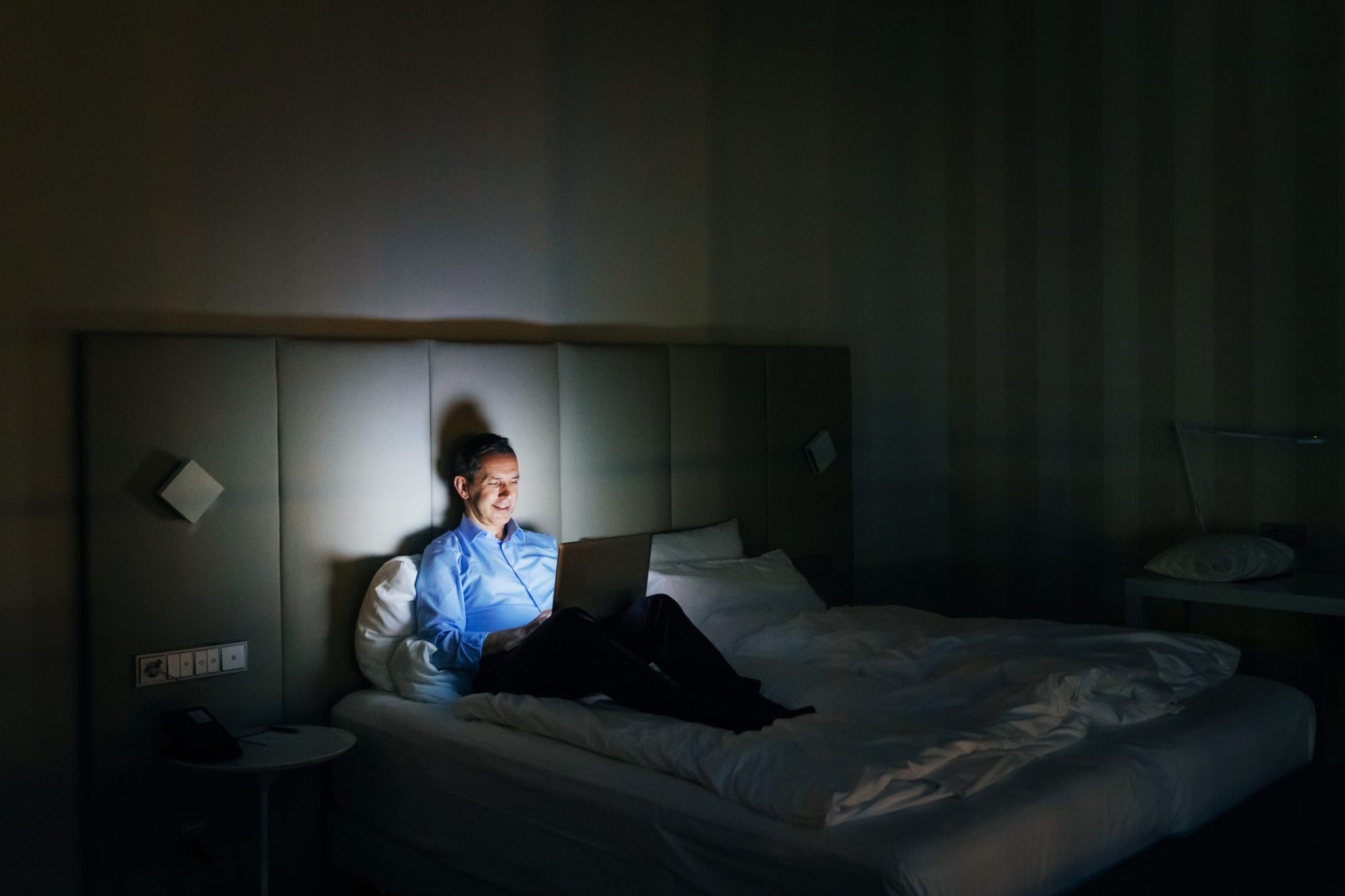
There are two types of people in the world: Those who spring up when their morning alarm goes off ready to pounce on the day ahead, and those who begrudgingly get out of bed and only start to feel alive as the sun sets.
Unfortunately for night owls, in the business world it often seems like the early bird catches the worm.
Tim Cook, Michelle Obama, and Jack Dorsey have had their morning coffee, caught up on emails, and squeezed in a workout before the sun has even risen—and that’s not a coincidence.
An extensive study, conducted by Mattress Next Day, found that while two-thirds of the general population claim to be night owls, their chances of success are much slimmer than those of morning people. When analyzing the sleep routines of 50 wealthy celebrities, it found that around 60% are early birds, just one in six are night owls, and a quarter are somewhere in the middle.
It’s why TikTok users are touting the benefits of the “five-to-nine before the nine-to-five,” and books like The 5 a.m. Club are encouraging people to seize the day, be more productive and “elevate” their lives.
Contrary to popular belief, however, you can still be successful and hit snooze on your alarm.
Fortune spoke to over a dozen night owl executives who revealed how they’re making their late sleep patterns work with their careers.
‘I’ve always been a night owl’
Jessica Alderson, CEO of dating app So Syncd, typically goes to bed between 2 a.m. and 3 a.m., and is awake by around 9 a.m..
“Despite the business world idolizing early risers, some CEOs are more productive as night owls, and I include myself in that category,” she said.
By listening to her body, she found that she naturally gets her best work done in the early hours of the morning—and embraced it.
“Some business leaders boast about their 5 a.m. starts and their strict routines,” she said. “But there isn’t a right or wrong approach. It’s about finding what works for you.”
Marco Frigatti, SVP at Guinness World Records, agrees.
“Unlike many other business leaders and chief executives, I’ve always been a night owl—or a late chronotype,” he said.
While he insisted he’s still able to wake up early, he said his brain isn’t. Fortunately, he doesn’t see not being productive before 10 a.m. as an issue.
Frigatti eases into his working day and unapologetically uses his morning time for himself, because the nights are when the real work takes place.
“My night times are when I’m condensing all the ideas, conversations and interactions I had throughout the day,” he explained. “It’s when I’m able to think critically, be more creative and come up with solutions to help my team and our clients succeed.”
Former morning person Mariel Reed, CEO of tech start-up Pavilion, told Fortune she turned to working after-hours after becoming a parent.
“I start my day earlier with my son and allocate the precious hours of 5 p.m. to 7:30 p.m. to spend quality time with him,” she said. “Then, I return to work later in the night when it’s quiet and uninterrupted.”
The advantages of clocking on after dark
Staying up late and waking up just before you have to start work at 9 a.m. is often associated with slacking—but these night owl CEOs prove the exact opposite: that working after dark can actually be a productivity hack.
For Frigatti, working when he feels most productive has resulted in some serious wins both personally and professionally.
By being able to clock off whenever his energy dips—say at 4 p.m.—and pick up where he left off, he says he has “managed to reduce stress, connect with my friends and family when I want, and most importantly, make the best use of my creativity.”
Like many of the other CEOs Fortune spoke to, Frigatti also noted that being a night owl enabled him to collaborate with team members and clients in different parts of the world during their working hours.
Other leaders also pointed out that by being up late, they could message staffers with important notes so that they could take action as soon as they logged on in the morning.
However, most CEOs said the lack of interruptions was the main advantage of working while everyone else is fast asleep.
During the day it’s all too easy to get pulled in all directions by the needs of workers, customers and the board. But, according to Todd Wiesel, CEO of whisky marketplace Baxus, the “quiet and solitude of the night” is the perfect environment for creativity, brainstorming and focused work, while he still has “the action items of the previous day fresh in my mind.”
How they’re making it work
Night owl CEOs are not working from noon onwards to make up for their biology—they’re simply putting in extra hours to be able to work when they’re most productive.
It’s a trade-off: In the same way an early riser uses the stillness before everyone’s awake to put in extra hours, night owls are trading their evening time to escape the workplace chatter and connect with creative tasks while everyone else is unwinding.
And for most of the leaders that Fortune spoke to, that trade-off is worth it because of the results they see and the way it makes them feel.
“I prefer to go to bed tired and wake up energized than to try and fall asleep while I am full of energy and excitement only to roll out of bed at 4 a.m. in search of calm and quiet,” Wiesel said.
And there is hope for night owls who long for a day where it’ll be socially acceptable to work after-hours without putting in overtime, according to Marina Martianova, CEO of the virtual fashion brand Seamm.
“The business world has shifted thanks to remote work and a global workforce,” she pointed out.
“This means your career success depends less on your schedule and more on your energy, flexibility and quick decision-making abilities. Take advantage of this newfound flexibility to create a more comfortable, productive work environment.”







